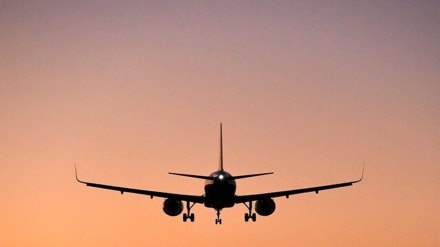Pakistan is slated to lose millions of dollars in the coming months following the closure of its airspace to Indian carriers. The curbs — announced amid escalating diplomatic tensions — will also hit more than 800 international flights operated b Indian airlines per week. The two nuclear-armed nations have unleashed a raft of measures against each other last week and continued to exchange fire along the Line of Control in Kashmir on Monday.
Airlines typically pay several fees amounting to hundreds of dollars each time they pass through the airspace of another nation. This includes overflight and navigation fees for all flights as well as terminal navigation, landing, and parking charges from planes that land in the country. While India has no flights that land in the country it typically has around a 100 flights per day which pass through Pakistani airspace. Recent reports indicate that there had been more than 800 international flights passing through Pakistani airspace every week till the ban was imposed.
Pakistan reportedly charges around $580 in overflight fees for a Boeing 737 — perhaps the smallest among major international carriers run by Indian airlines. The rates change on the basis of maximum take-off weight and the distance flown with bigger planes facing even higher fees. With the recent ban on Indian airlines this leads to a daily loss of at least $58,000 per day. It is however pertinent to note that India also operates several bigger crafts — including the Boeing 777 which has a maximum takeoff weight roughly 2.5 to 3 times that of a Boeing 737. With overflight fees calculated in proportion to aircraft weight this could mean a fee of $1,200 to $1,700 per flight. Estimates based on the current international fleet operated by Indian airlines indicates that Pakistan is now facing a daily loss of around $120,000.
According to reports, Pakistan had lost nearly $100 million in 2019 when it closed its airspace for around five months following the Pulwama attack and subsequent Balakot airstrikes. Around 400 flights were reportedly affected daily during this period and caused heavy losses for the Pakistani Civil Aviation Authority and Pakistan International Airlines. Islamabad also started re-rerouting its flights this week to avoid Indian airspace — opting instead for slightly longer routes over China. This is also likely to have a financial toll due to increased fuel burn and complications linked to crew and flight scheduling.
Meanwhile the Indian government is now working with domestic airlines to better understand the implications of the airspace closure and work out solutions. More than 800 international flights operated by Indian carriers are likely to be affected per week due to the closure. Flight tracking data indicated that some ultra-long-haul planes travelling to and from North America were now taking technical halts (for refueling or crew change) at European airports.
